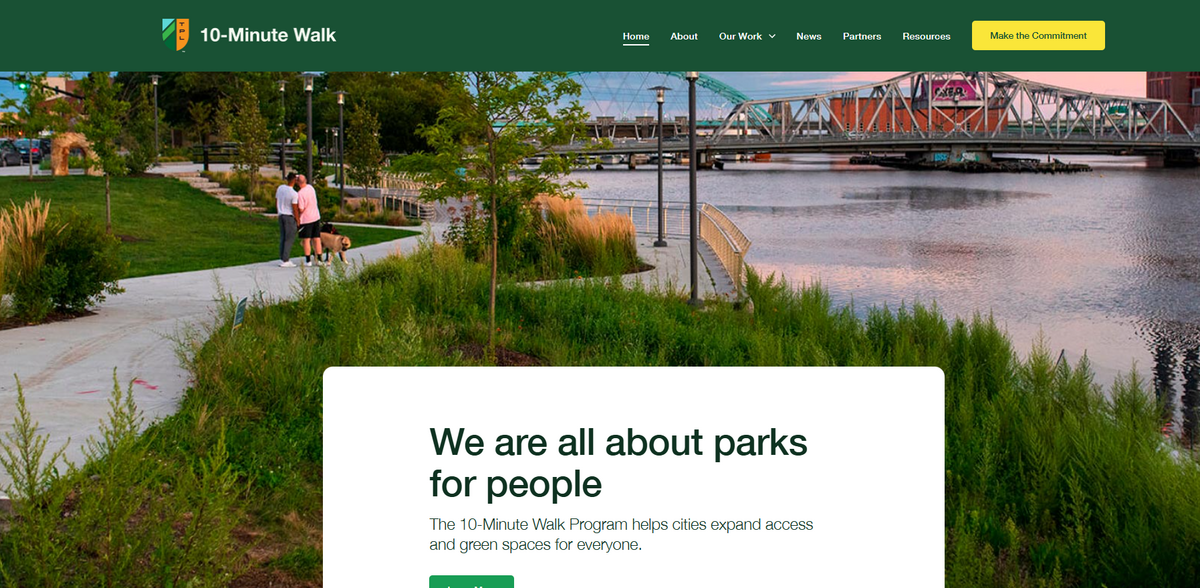About the 10-Minute Walk Project
The 10-Minute Walk Program is all about parks for people – a movement that inspires U.S. cities to re-imagine their landscapes by expanding access to green spaces for everyone. The mission is clear: every resident in U.S. cities should have access to a quality park within a 10-minute walk of home. In a world that values equitable, healthy, and thriving communities, mayors are encouraged to accelerate the creation of parks that serve as critical infrastructure to improve quality of life.
Key Benefits and Vital Statistics
The project brings forth a powerful promise for change, supported by striking figures and facts. A look at the numbers reveals just how crucial park equity really is:
- 1 in 3 U.S. residents do not have a park or green space within a 10-minute walk of home.
- 100 million people, including 28 million children, do not have access to parks.
- Parks serving a majority of people of color are, on average, half as large and serve nearly five times more people than parks that serve a majority-white population.
- Parks serving primarily low-income households are, on average, four times smaller than parks that serve a majority of high-income households.
Closing the Park Equity Divide
The initiative works hard to close the park equity divide in cities across the nation. By leveraging planning, policy, and funding, the project advances practices that help shrink the gap in access to green spaces. It is a call to action that highlights disparities, ensuring that investments are focused where they are needed the most. With a renewed focus on who does or does not have access to the benefits of parks, there is a shared vision for a future that is more inclusive. This is more than just planting trees or installing benches – it is a renewed commitment to urban well-being, where every community member feels valued.
Collaborative Work and Partnerships
Collaboration is at the heart of the 10-Minute Walk Program. The project leverages a powerful network of community and national partners – from city leadership, municipal planning, and engineering to public health, education, and non-profits. This vibrant ecosystem underscores the idea that it takes a team to create truly equitable and thriving communities. Since its launch in 2017 with founding partners, the initiative has brought together a diverse range of stakeholders to workshop ideas, share best practices, and learn from one another. Ideas are exchanged and celebrated – a testament to the power of partnership in driving impactful change.
Mayors Commit to Parks
Across the nation, mayors and city agencies are stepping up to transform urban spaces. They are at the forefront of a broader re-visioning of cities where parks are not just recreational areas but strategic assets in housing and development projects. By integrating nature-based solutions, cities are using parks to manage flooding, reduce heat, and improve resilience. These leaders understand that park equity is crucial to creating communities that are not only healthier but also more just. Changes in urban policies are designed to ensure that parks become accessible to all, paving the way for thriving neighborhoods that can withstand the challenges of modern urban growth.
Project Impact and SDG Alignment
- SDG 3: Good Health and Well-being
- SDG 10: Reduced Inequalities
- SDG 11: Sustainable Cities and Communities
- SDG 13: Climate Action
- SDG 15: Life on Land
Tools for Cities and Park Advocates
For those on the frontlines of urban planning and park advocacy, a treasure trove of resources is available. Through tools like ParkServe, cities can map who has access to parks, discover key areas for investment, and explore rankings of the 100 largest cities’ park systems. These resources empower leaders to make informed decisions that improve park access, quality, and equity. The initiative offers a platform where ideas flow freely – almost like a community chat over coffee – creating opportunities for shared learning and dynamic problem-solving. It is a refreshing reminder that delivering quality parks is as much about community engagement and shared knowledge as it is about physical space.


















